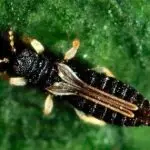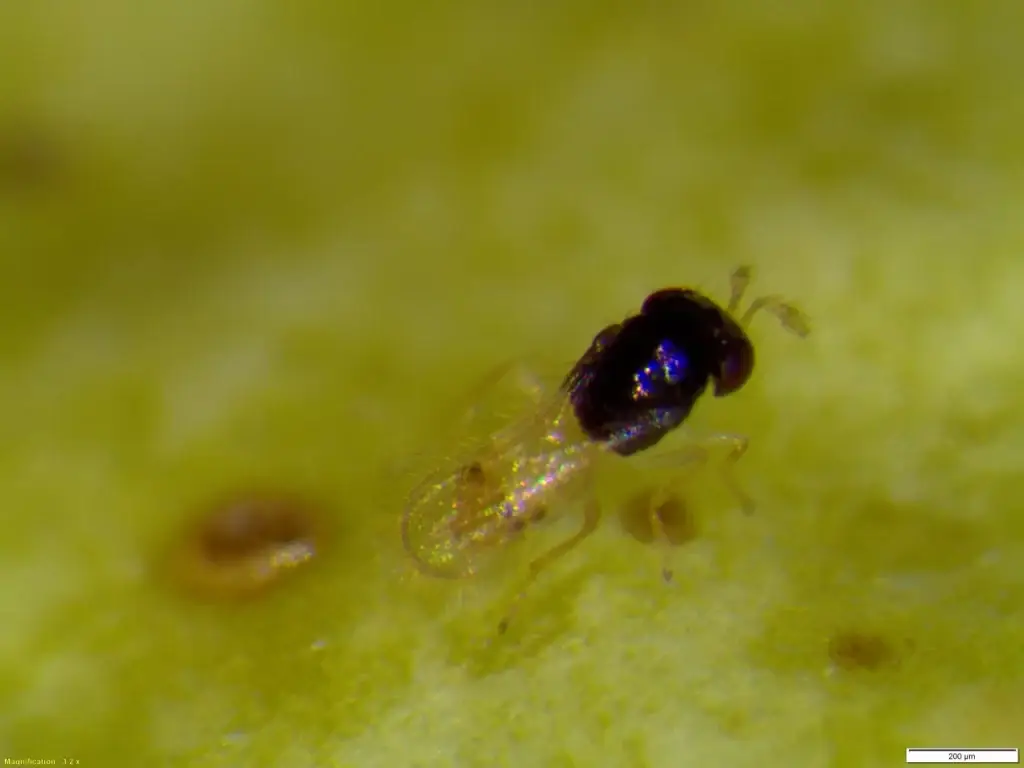Thripobius
Overview
Thripobius javae (Thripobius) is a native Australian parasitic wasp used as a biological control agent of Greenhouse Thrips (Heliothrips haemorrhoidalis) in greenhouse plants, tropical plants, and some field crops.
Greenhouse Thrips have more than 100 hosts, including azalea, begonia, croton, cyclamen, ferns, cannabis, orchids, palm, roses and avocado. Greenhouse Thrips also attack a range of outdoor crops in warm humid environments, including ficus, camellia, cymbidium and other orchid varieties, viburnum, citrus, coffee, macadamia, mango and many other ornamental plants.
Whilst not a major pest, other beneficials are not able to properly control Greenhouse Thrips, making Thripobius a necessary product where this pest occurs. Greenhouse Thrips are also difficult to control with chemicals. Franklinothrips vespiformis should be used in conjunction with Thripobius for best results.
How Thripobius controls pests among crops
Thripobius wasps lay eggs inside the body of Greenhouse Thrips larvae. First or early second instar of thrip larvae are the most susceptible stages for parasitism. When the parasite larva is fully grown, it kills the thrip larvae, pupates inside the thrip larval skin, and forms a bloated black mummy when fully developed. A new wasp then emerges from the mummy to continue the cycle.
Certain pesticides and fungicides affect Thripobius so contact your local Biological Services Consultant for specific advice.
How you can order Thripobius
You can order Thripobius javae from Biological Services as loose pupae in plastic vials (100 pupae/vial).
Get tailored advice for your commercial crop
To speak with one of our qualified consultants about your current commercial crop challenge or to learn about the benefits of the IPM maintenance and monitoring services we provide, contact us.






